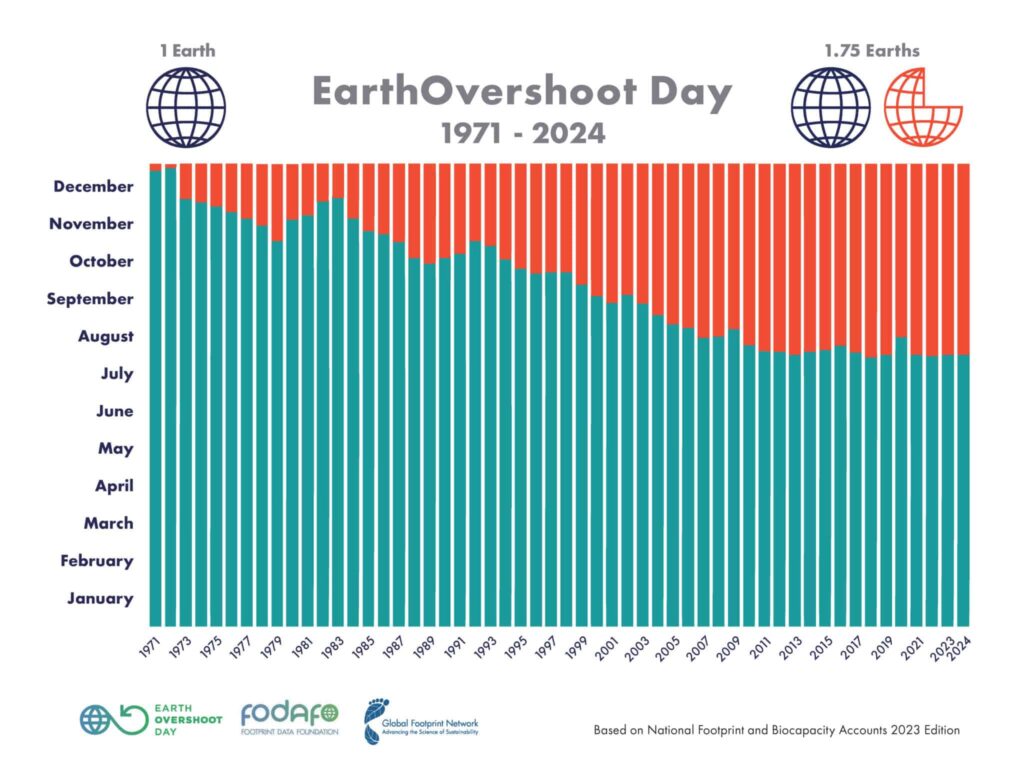On Friday, August 1, 2024, our Planet reached an unenviable milestone: we have officially exhausted all the world’s natural resources that the Earth is capable of regenerating in one year (while in Italy in particular, we had already run out in May 2024). This date, known as Earth Overshoot Day, is a powerful reminder of the urgency with which we must address our consumption practices and their impact on the environment.
What is Earth Overshoot Day?
Earth Overexploitation Day is calculated by the Global Footprint Network, an international research organization that measures humanity’s ecological footprint. It marks the point in the calendar when humanity’s annual demand for natural resources exceeds what the planet’s ecosystems can renew in that year. From that day forward, we are living “on credit” with Earth’s natural resources.
Exhausting annual natural resources so early has several serious consequences:
- Loss of biodiversity: increasing pressure on ecosystems leads to the destruction of natural habitats, threatening many animal and plant species;
- Soil degradation: overuse of agricultural land leads to soil degradation, reducing agricultural productivity and jeopardizing global food security;
- Climate change: overuse of fossil resources increases greenhouse gas emissions, accelerating climate change with devastating effects such as extreme weather events, sea level rise and droughts;
- Water stress: overexploitation of water resources leads to water scarcity, compromising access to drinking water and agricultural irrigation.
All Overshoot days, through 2024
But how can we reverse the trend?
Reversing the trend of overexploitation requires concerted action at the global, national and individual levels. Here are some of the most effective measures:
- Renewable energy: promote the use of renewable energy sources such as solar, wind and hydropower to reduce dependence on fossil fuels;
- Plant more trees: one of the most effective and affordable actions we can take to combat climate change, preserve biodiversity and improve the quality of life on Earth;
- Sustainable consumption: adopting more sustainable consumption habits, reducing waste and choosing products with less environmental impact;
- Ecosystem conservation: protect and restore natural ecosystems to preserve biodiversity and maintain essential ecosystem services;
- Sustainable agriculture: promote agricultural practices that conserve soil, use less water, and reduce the use of chemical pesticides;
- Environmental policies: implement government policies that incentivize sustainability, such as carbon taxes, resource use regulations and subsidies for green technologies.
Earth Overexploitation Day should serve as a wake-up call for all of us. The time to act is now, and each of us has a role to play. By adopting a more sustainable lifestyle and supporting responsible environmental policies, we can help move this date further and further ahead in the calendar, protecting our planet for future generations.

